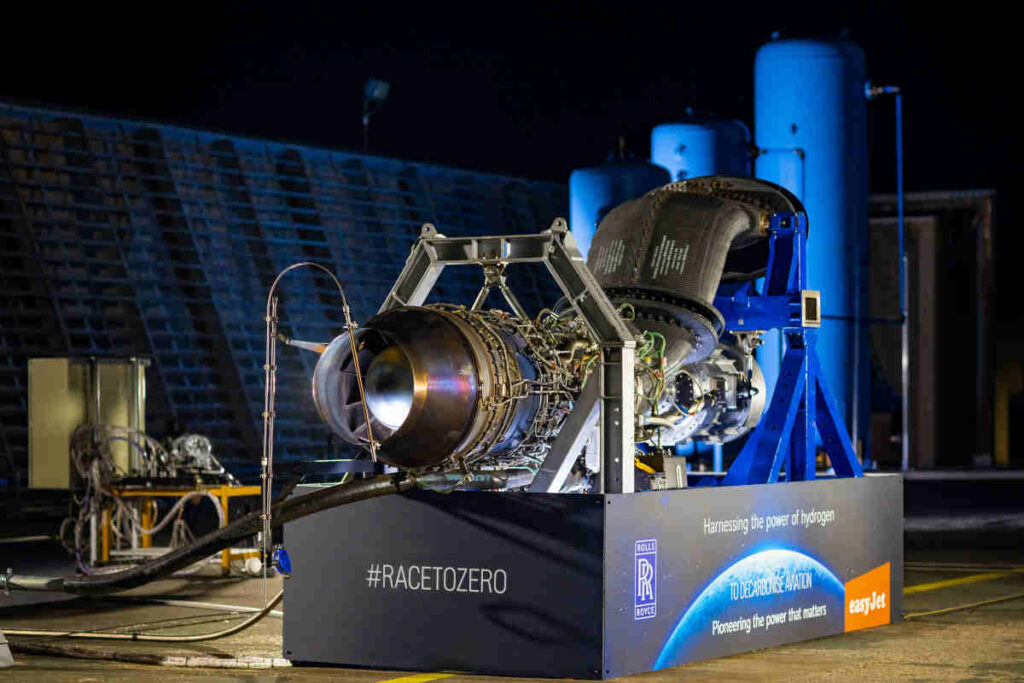
Features
Airlines
Engines
Rolls-Royce runs hydrogen fuel ground test with jet engine
November 28, 2022 By Wings Staff
 The technology partnership between Rolls-Royce and easyJet, focusing on the use of hydrogen to run civil aero engines, is inspired by the UN-backed Race to Zero campaign to achieve net zero carbon emissions by 2050. (Photo: Rolls-Royce)
The technology partnership between Rolls-Royce and easyJet, focusing on the use of hydrogen to run civil aero engines, is inspired by the UN-backed Race to Zero campaign to achieve net zero carbon emissions by 2050. (Photo: Rolls-Royce) Rolls-Royce and easyJet claimed a new aviation milestone with the world’s first run of a modern aero engine on hydrogen.
The ground test was conducted on what the Rolls-Royce labels as an early concept demonstrator using hydrogen created by wind and tidal power. The company describes the test as a major step toward proving that hydrogen could be a zero-carbon aviation fuel of the future and key part of decarbonization strategies of both Rolls-Royce and easyJet.
“We only announced our partnership with easyJet in July and we are already off to an incredible start with this landmark achievement,” said Grazia Vittadini, Chief Technology Officer, Rolls-Royce. “We are pushing the boundaries to discover the zero carbon possibilities of hydrogen, which could help reshape the future of flight.”
The test took place at an outdoor test facility at MoD Boscombe Down, UK, using a converted Rolls-Royce AE 2100-A regional aircraft engine. Hydrogen for the tests was supplied by EMEC (European Marine Energy Centre), generated using renewable energy at its hydrogen production and tidal test facility on Eday in the Orkney Islands, Scotland.
“The UK is leading the global shift to guilt-free flying and today’s test by Rolls-Royce and easyJet is an exciting demonstration of how business innovation can transform the way we live our lives,” said Grant Shapps, UK’s Secretary of State for Business, Energy and Industrial Strategy.
Following analysis of this early concept ground test, the Rolls-Royce and easyJet partnership plans a series of further rig tests leading up to a full-scale ground test of a Rolls-Royce Pearl 15 jet engine.
“We are committed to continuing to support this ground-breaking research because hydrogen offers great possibilities for a range of aircraft, including easyJet-sized aircraft,” said Johan Lundgren, CEO of easyJet. “That will be a huge step forward in meeting the challenge of net zero by 2050.”